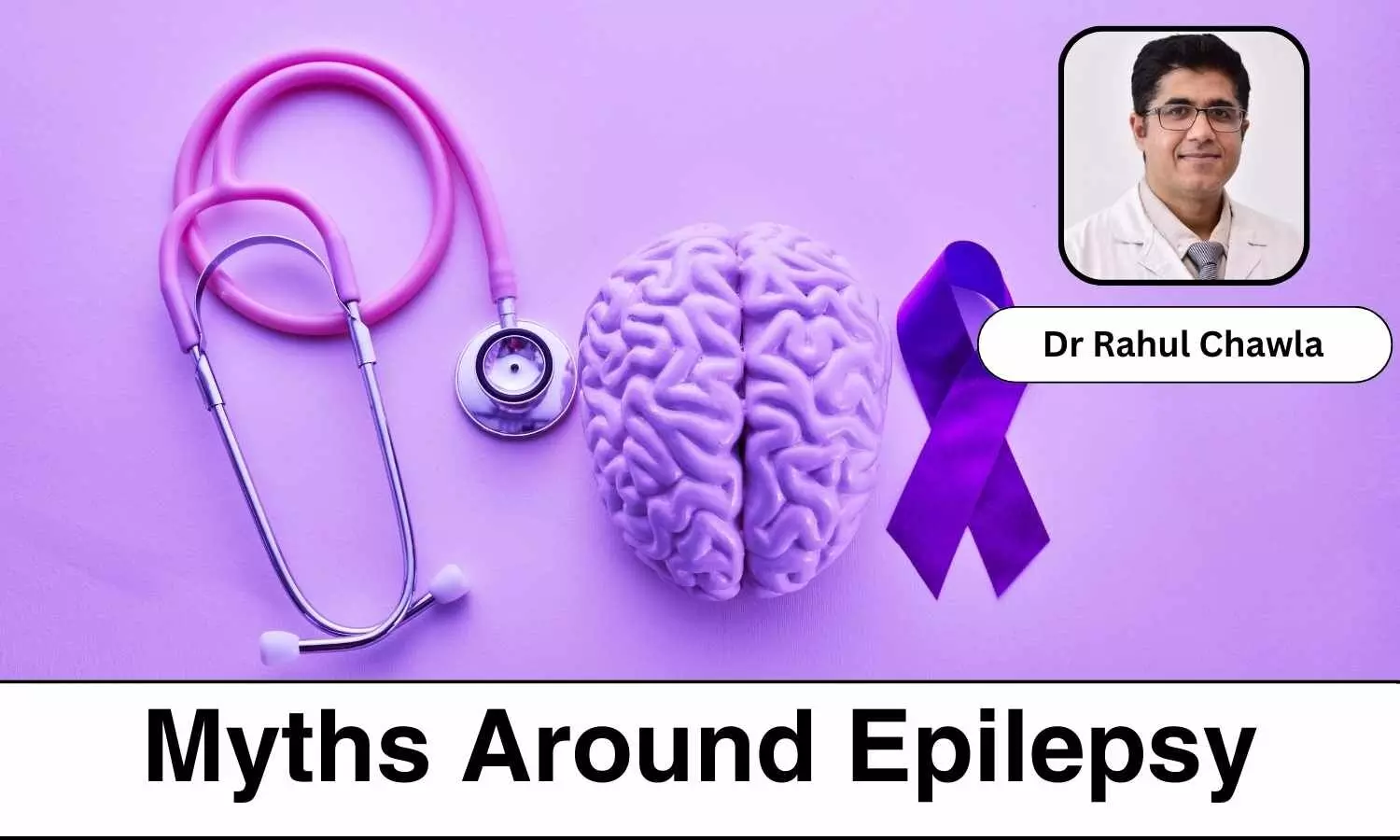5 Epilepsy Myths Debunked by Neurologist – Dr Rahul Chawla

Epilepsy is a neurological disorder characterized by
recurrent, unprovoked seizures.
Seizures are sudden, uncontrolled electrical disturbances in
the brain that can manifest in various ways, depending on the part of the brain
affected.
A seizure is the event. Epilepsy is the disease associated
with spontaneously recurring seizures.
Operational Definition of Epilepsy (ILAE 2014)
Epilepsy is a neurological disorder characterized by
recurrent, unprovoked seizures; defined by any of the following conditions:
1. A least two unprovoked (or reflex) seizures occurring
>24 h apart.
2. One unprovoked (or reflex) seizure and a probability of
further seizures similar to the general recurrence risk (at least 60%) after
two unprovoked seizures, occurring over the next 10 years.
3. Diagnosis of an epilepsy syndrome.
There have been a lot of misconceptions in India regarding
epilepsy. Here are 5 Common myths around Epilepsy:
MYTH 1
Epilepsy is caused
by Evil Spirit. It is a Mental Illness.
FACT
- Epilepsy is a neurological condition.
- Epilepsy affects mental health and patients may
have coexisting mental health issues, but it’s not a mental illness.
MYTH 2
Epilepsy Can Be Cured by Home Remedies
FACT
- Epilepsy requires anti-seizure medications, which
have to be taken after consultation with a neurologist or physician. - Epilepsy cannot be cured by home remedies or
alternative therapies alone.
MYTH 3
Epilepsy is Contagious
FACT
- Epilepsy is not contagious.
- It’s a neurological disorder, not an infectious
disease.
MYTH 4
Epilepsy Medications Are Addictive
FACT
- Epilepsy medications are not addictive.
- Epilepsy medications can effectively control
seizures, allowing people to lead normal lives.
MYTH 5
Epilepsy requires patients to take life-long medications
FACT
- The duration of treatment depends on the
etiology. - The duration is likely to extend if the patient
has seizure despite taking anti-epileptic medication and requires escalation of
medications. - Certain genetic epilepsy syndromes may warrant
life-long anti-epileptic treatment.
Patients with well controlled seizure and normal EEG and MRI
Brain after 3 years are candidates for tapering and cessation of anti-seizure
medications under supervision.
Epilepsy is a treatable condition. It is important to find
the cause for epilepsy and treat for desired time duration. If not treated,
recurrent seizures predispose patients to status epilepticus, which is a life-threatening
condition.
Patients with uncontrollable epilepsy are also at risk for
SUDEP (sudden unexpected death in epilepsy patients). Hence, it is necessary to
be under regular follow up and strict compliance to medications to be ensured.


